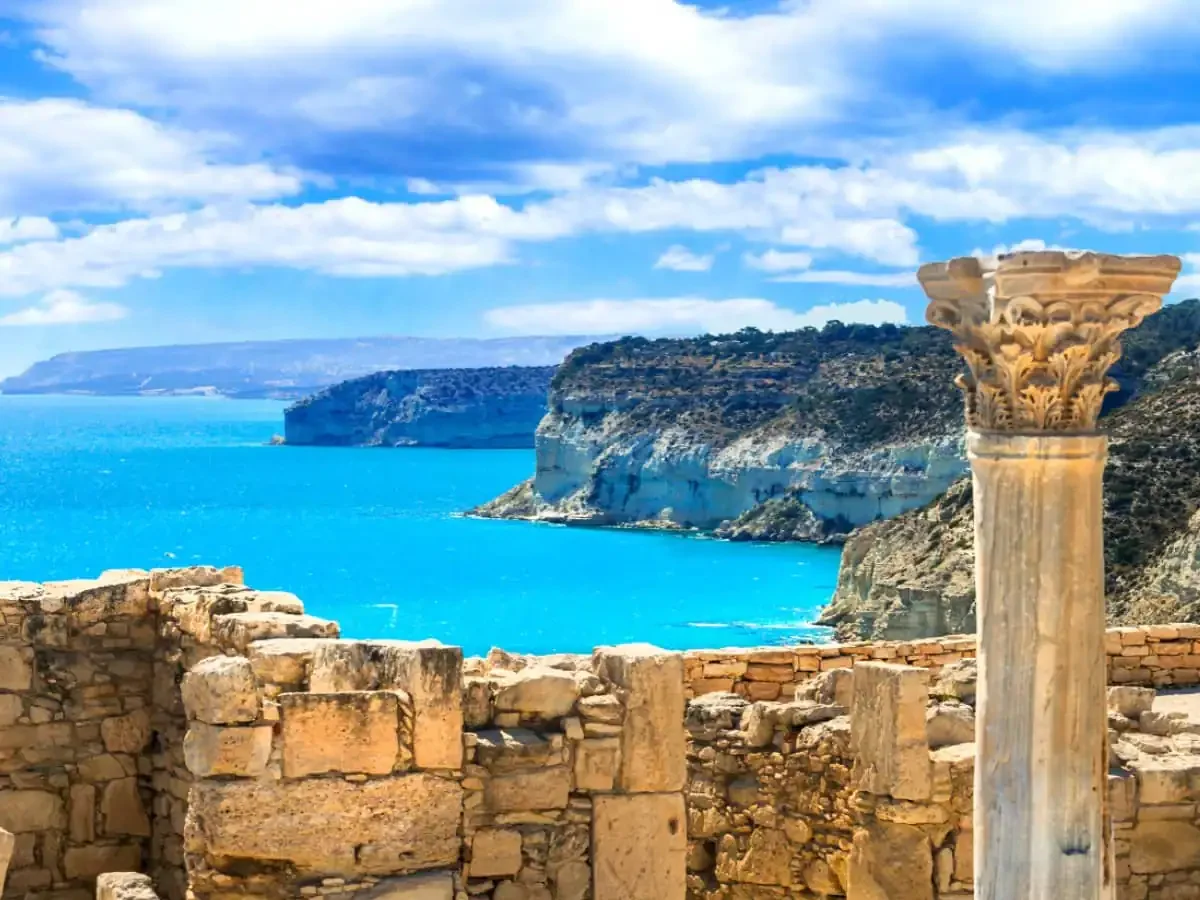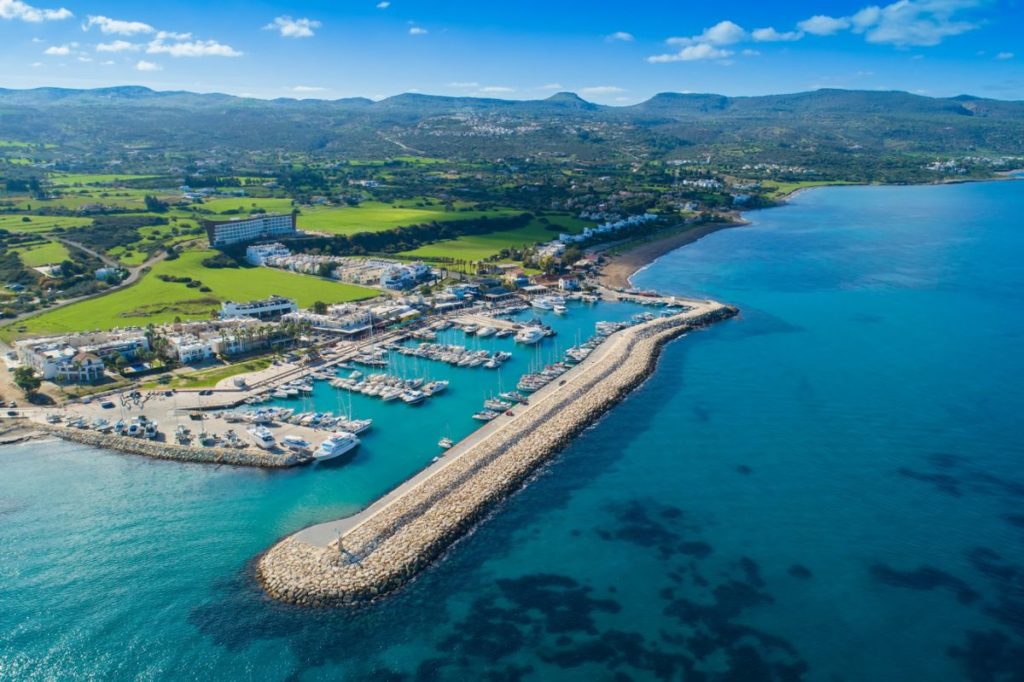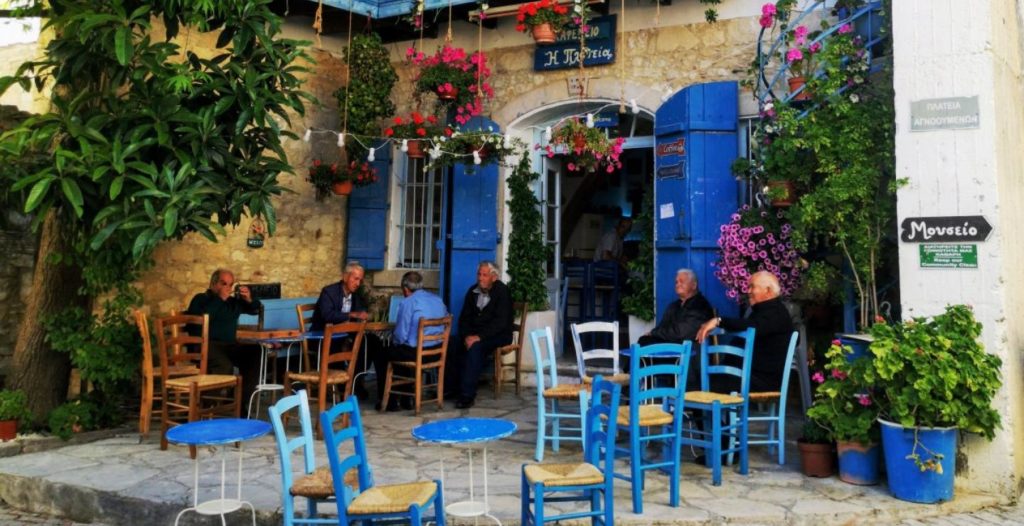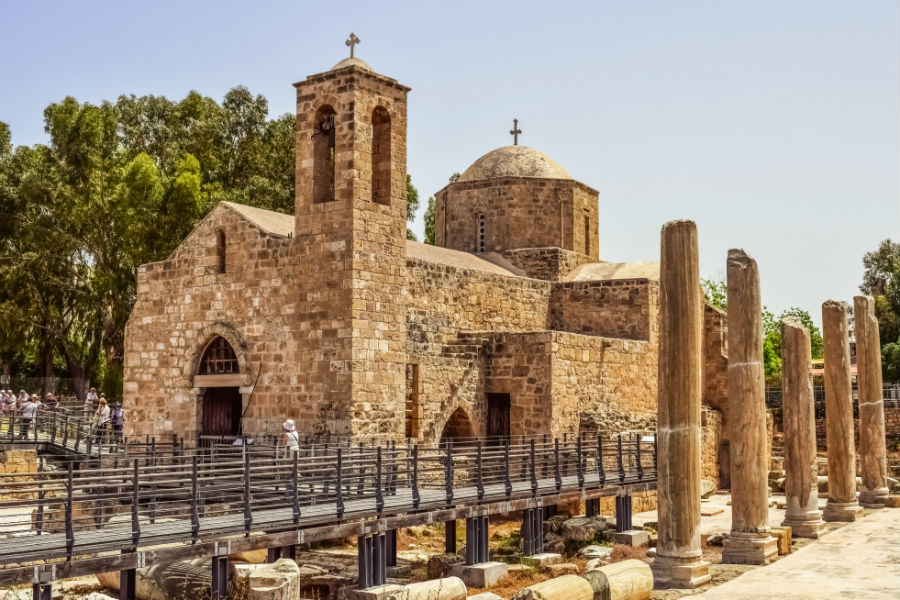
Facts about Paphos
Welcome to an enlightening journey through the ancient city of Paphos, where history, myth, and natural wonders intertwine. Delve into a treasure trove of captivating facts about Paphos, from its status as the birthplace of Aphrodite, the Greek goddess of love, to its remarkable archaeological sites and mythical allure. Discover its enviable climate, boasting over 300 days of sunshine per year, and its vibrant arts and culture scene. Indulge in authentic Cypriot cuisine and sample local wines that have thrived for centuries. Join us as we unravel the lesser-known facts about Paphos and unlock the enchantment of this extraordinary city.

The untouched beauty of Paphos’s landscapes and the variety of experiences the island has to offer will easily charm first-time visitors. It’s not uncommon for visitors to the sunny island to call their stay “divine”, and many decide to call it “home”.
More interested in the topic of moving to Cyprus? This article covers everything you need to know, from visa requirements for both EU and non-EU citizens to transportation! Want to learn more about life in Paphos or doing business in Paphos? We got those covered as well.
Table of Contents
Introduction to Cyprus
- Population: About 1.2 million
- Capital city: Nicosia (also the largest city)
- Main languages: Greek, Turkish, and English
- Main religion: Orthodox Christianity
- Political system: Unitary presidential constitutional republic
- Time: GMT+2 (GMT+3 from March to October)
- Electricity: 240V, 50Hz. British-style plugs with three flat blades are used
- Currency: Euro (EUR)
- International dialing code: +357
- Internet domain: .cy
- Emergency numbers: 112 (European), 199 (local)
- Road traffic: Drives on the left
#Funfact: Cyprus has a shape akin to a cigar pipe. Take a closer look at the map of Cyprus above.
Interesting facts about Paphos
- Can a whole town be a UNESCO World Heritage Site? Of course! Paphos town is one of the three UNESCO World Heritage Sites in Paphos.
- Paphos is home to some of the world’s oldest water wells. The stone-age wells that were found in Kissonerga, have been around for about 10,500 years. They serve as a reminder of the sophistication of Neolithic settlers.
- According to legend, Aphrodite appeared from a rock at Poli Crysochous’ Latchi, now known as Aphrodite’s Beach; Paphos is said to be the birthday of Greek goddess of love Aphrodite.
- In Paphos, there is a tree that is said to grant wishes. Handkerchiefs and ribbons are strung from this tree, which is located at the entrance to the Paphos Christian catacombs, at the Harbour. When something that belonged to them is tied to the tree along with a belief that good will happen, people believe that infertile women will become pregnant and that people will return to their loved ones.
- Paphos’ economy is largely reliant on tourism, and the area is home to four resorts: Kato Paphos, Coral Bay, Latchi, and Aphrodite Hills.
- Paphos served as the 2017 European Capital of Culture, along with the Danish city of Aarhus.
- Paphos has a long history of having teams for sports like football, basketball, and volleyball.
- Up until 1974, the area of the island that was the least developed was the city and district of Paphos.
Key phrases in Greek

While it’s true that 70% of Greek-Cypriot speak English, it is recommended to learn some common phrases in Greek, especially if you want to learn more about the locals and experience Cypriot culture.
Hello: Γειά σου (YAH-soo)
Nice to meet you: Χάρηκα πολύ (HA-ree-ka po-LEE)
How are you?: Tι κανείς (tee-KAH-nis)?
Good morning: Καλημέρα (kah-lee-MER-ah)
Good afternoon/evening: Καλησπέρα (kah-lee-SPER-ah)
Goodbye: Γειά σου (YAH-soo)
Thank you: Ευχαριστώ (eff-kha-ri-STOE)
Please/You’re welcome: Παρακαλώ (para-kah-LOE)
Yes: Ναί (neh)
No: όχι (OH-hee)
Excuse me/Sorry: Συγνώμη (See-GHNO-mee)
Do you speak English?: Μιλάτε αγγλικά (Mee-LAH-teh ag-li-KAH)?
Help! Βοήθεια (voh-EE-thee-yah)
Cyprus weather
Cyprus experiences typical Mediterranean weather, with 300 to 340 sunny days on average per year. The summer season lasts from mid-May to mid-October and is characterized by hot, dry weather with infrequent showers. There are many clear days, and during July and August, temperatures can easily reach 35 °C (95 °F) or higher.
December marks the start of winter, which lasts until February and is when Cyprus experiences the majority of its annual rainfall. Although winter temperatures in Cyprus are significantly lower than summer temperatures, with an average maximum of 16°C (61°F), winter is still much warmer than winter in continental Europe.
Cypriot cultural values
The people of Cyprus are friendly and liberal people who welcome guests and are tolerant of their cultural practices. However, being familiar with the local cultural values is important for you to build better social and business relationships and to have a more enjoyable experience living on the island.
A family-oriented society
Today’s Cypriot society values the family and maintains a hierarchy based on status and age; perhaps due to the influence of the two major religions – Orthodox and Islam. Both immediate and extended family members uphold strong bonds and are expected to support one another. Several generations of one family frequently coexist because children are expected to care for their parents as they get older. An important aspect of the culture is respect for the elderly, and this respect is frequently expressed explicitly. For instance, in a social setting, the oldest person may be welcomed and served before others.
Religious customs

Orthodox Christianity and Islam are the two main religions in Cyprus, as was previously mentioned, but up to 72% of the population identifies as Christian. There are a lot of Muslims who actively practice their religion in the northern part of the island, but there aren’t many mosques there. The government actively defends and upholds the country’s constitutional guarantee of religious freedom. Additionally, an increasing number of Cypriots claim to be atheists.
Social etiquette
Social customs on the island might appear a little formal to someone who is used to a more laid-back cultural environment. For instance, it is customary to use the formal titles Kyrie (Mister) or Kyria (Missus) when speaking to elderly people. In general, you should only use someone’s first name if they have specifically invited you to. Additionally, you are expected to shake hands with each guest individually at the start and end of a social event. You might anticipate the host introducing you to others at smaller events.
Kissing on the cheek at a greeting is common between a man and a woman and two women; men usually shake hands. During a greeting, it is customary for Greek Cypriots to maintain eye contact and smile; though many Turkish Cypriots would lower their eyes to show respect.
Hospitality
Showing hospitality is something of a national tradition, and Cypriots are proud of it. As a result, if you become friends with any Cypriots, you may receive lunch or dinner invitations. Here are some crucial things you need to keep in mind if you are invited.
- Bring your host a small gift, like treats or pastries.
- Dress up! Don’t come in t-shirt and shorts.
- Remain standing until you are asked to sit down.
- Wait for the hostess to start eating.
- Don’t pass dishes with your left hand.
- Having left over on the plate is perceived as bad manners; though you may find it challenging to clean the plate, given how much food being offered.
Punctuality
It’s interesting to note that it appears that attitudes toward time and punctuality are unaffected by the apparent formality of Cypriot society. The timing is somewhat flexible. Meetings, for instance, rarely start on time, and it’s practically expected that you’ll be late when you’re invited to a social event.
Political System
On May 1, 2004, Cyprus was admitted as a member of the European Union. Even though the EU decided to admit Cyprus as a whole, the Turkish Republic of Northern Cyprus is currently exempt from applying EU rules, regulations, and policies until a settlement or unification agreement has been reached.
The position of president, who serves as both the Chief of State and the Head of Government, is where the majority of political power is held in Cyprus. The president is chosen by the people to serve a five-year term. Nikos Christodoulides was elected for this position in February 2023, became the youngest president in the history of the country.
The House of Representatives in Cyprus’s parliament has 80 seats, only 56 of which are filled; the remaining 30% are reserved for Turkish Cypriots but have been empty since 1964. Every five years, parliamentary elections are held. The parliament currently has 9 parties. The Democratic Rally, a conservative and Christian-democratic party, is currently in power in Dimokratikós Sinagermós.